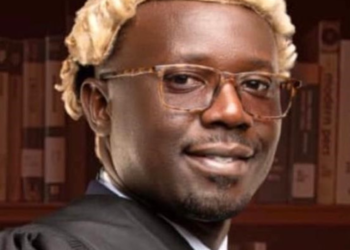Justice delayed, nation at risk: Why the judiciary must resolve PF crisis now
By Dr Lawrence Mwelwa
IN the wisdom of our ancestors, justice was not just a system—it was a sacred duty. Elders under the shade of the baobab tree would resolve disputes not just for the parties before them, but for the peace of the whole village. They knew what we risk forgetting today: a community without swift and fair judgment is a community that will eventually burn from within. That ancient wisdom speaks loudly to us now, especially to those entrusted with the solemn responsibility of guarding the rule of law—the Judiciary, and above all, the Chief Justice of the Republic of Zambia.
The Patriotic Front (PF), once a governing party, is today a house divided, torn apart by leadership wrangles that have spilled beyond courts and conference rooms into public threats, paranoia, and now, chilling allegations of assassination plots. When Robert Chabinga, a sitting Member of Parliament, stands before the nation and claims his life is under threat from political rivals, we cannot afford to dismiss it as mere theatrics. True or not, it signals the beginning of social disorder, the kind our judiciary was designed to prevent.
Yet, where is the Judiciary’s voice in this? Where is the firm hand of the Court that should have settled the PF leadership crisis long ago? These are not new disputes. The factional chaos within PF has moved from Lusaka to the provinces, from press briefings to courtrooms. Petitions have been filed. Injunctions granted. Others ignored. But what we haven’t seen is a clear, final, expedited ruling that brings order to this chaos. Justice delayed, in this context, is not just denied—it is dangerously deferred.
The Chief Justice of Zambia, custodian of our judicial integrity, must surely understand that leadership battles within a major opposition party are not trivial matters. These battles affect not only those involved, but the legitimacy of Parliament, the peace of constituencies, and the confidence of citizens in multiparty democracy. The courts cannot afford to be silent referees while the game descends into a brawl. A court that whispers when the country needs it to speak is no longer a pillar of stability, but a shadow of what it ought to be.
Across Africa, history has shown us what happens when leadership disputes fester without legal resolution. In Kenya, in Zimbabwe, in Côte d’Ivoire—we have seen bloodshed follow legal inertia. We have seen how ambiguous authority and delayed rulings open the door for militias, foreign interference, and deep national wounds. Zambia must never walk that path. We have been a beacon of peace not because we are immune to conflict, but because our institutions—especially the courts—have stood firm when needed most.
The current PF confusion is not about personalities. It is about precedent. If courts cannot swiftly determine who the rightful leader of a party is, then what prevents every future party from descending into the same anarchy? What precedent are we setting if records at the Registrar of Societies carry more weight than court rulings or party constitutions? What happens when one man’s signature replaces the will of thousands of members?
The Judiciary has a duty to protect the Constitution, not merely interpret it in academic detachment. The Chief Justice has a duty not only to manage the system but to guide it in moments of national uncertainty. We do not ask the courts to take sides in politics—we ask them to uphold the law clearly, fairly, and urgently. That is what the moment demands.
Let us not wait until someone is harmed. Let us not mourn over what wisdom could have prevented. Our ancestors taught us that justice, like rain, must fall when needed—not months after the fire has spread. Let this be a moment of reckoning, a call for the courts to speak, settle, and restore order. The PF crisis is a legal one. It must be resolved with urgency before it becomes a national one.

























